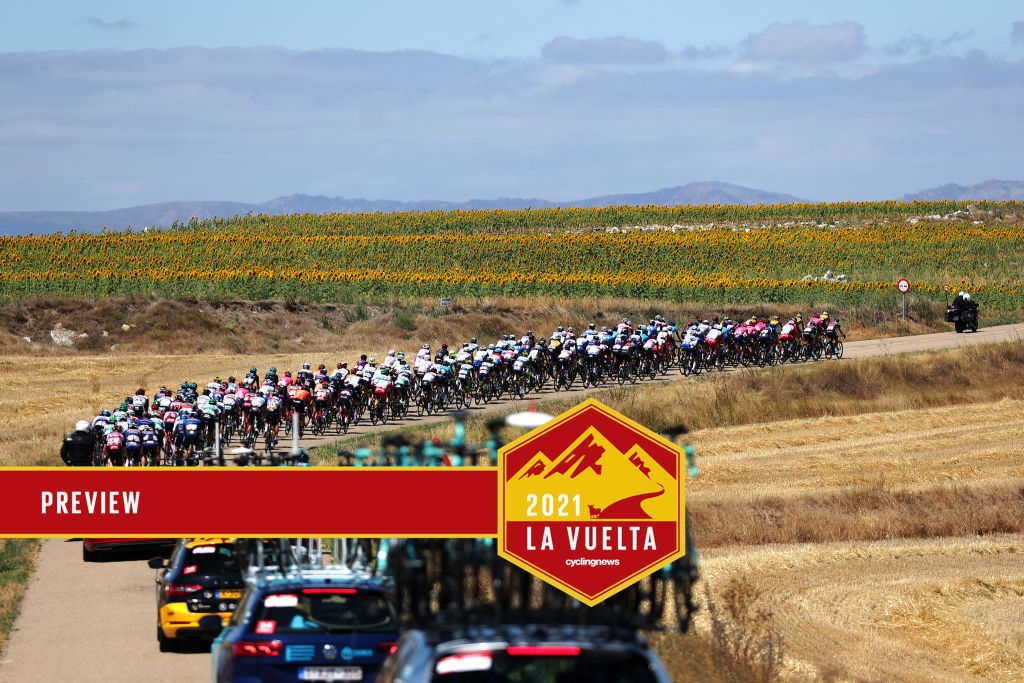Echelons a tradition in Albacete stage of Vuelta a España - Preview
Spain’s first ‘Windy City’ finish since 2014 could spark splits on stage 5

Of all the flat stages in this year’s Vuelta a España, few will spark as much trepidation in the peloton this year as the stage 5 flatland trek to Albacete. Why? The answer is simple: the wind.
Set in the middle of the Castille plains south-east of Madrid, the city most famous in Spain for its knife-making industry (and why not) has long featured on the Vuelta’s menu, with 21 finishes dating all the way back to 1942. But while clearly a favourite destination for sprinters, more recently Albacete has developed a well-earned reputation for echelons.
In the last 25 years, in fact, five of the six road stages that finished there have ended in small group sprints after the main group splintered in crosswinds.
And on Wednesday with the race approaching Albacete from the north, and forecasts of easterly winds of around 20 kph, not to mention thunderstorms, the tension in the Vuelta a España peloton will likely be cuttable with one of those famous Albacete blades.
According to race co-designer Fernando Escartín, the 2021 route into Albacete has been specifically designed to give every chance for echelons to form.
“We’ve been deliberately nasty”, Escartín told Cyclingnews earlier this year “but that’s what every race organiser does.
“It’s much harder than it used to be for echelons to form because teams race more as single units now, all grouped together. So we’ve done our best in the route design to catch them out.”
Get The Leadout Newsletter
The latest race content, interviews, features, reviews and expert buying guides, direct to your inbox!
Two big, right-angled corners, one at 52 kilometres to go at La Roda and another 30 kilometres from the finish at Barrax, are the most likely points for splits to form.
“Hopefully that should help the race get caught in the cross-tailwinds you tend get in that area, because those are the best for echelons,” Escartin said.
Just to spice things up, La Roda will also be the scene of a hot spot sprint, with bonus seconds on offer to encourage more aggressive racing.
“It will be a nervous stage, and a lot will depend on how strong the wind is,” Egan Bernal (Ineos Grenadiers) told reporters after stage 4. “On these stages you have to always stay in the front, be intelligent and move well, because otherwise you get dropped.”
History certainly suggests that a day of strong winds and splits are possible. In 2014s finish in Albacete, the most recent, a group of 55 finished ahead, although none of the race favourites were caught out.
However in 2003, Alejandro Valverde, battling for his first Vuelta podium, lost 1:09 to 22 riders who formed a first echelon, while in 2001 GC contenders and ibanesto.com teammates Juanmi Mercado and Aitor Osa both lost a minute in the same scenario.
Then in 2000, climber Roberto Heras also lost around the same time at Albacete, although that did not stop him from bouncing back on the Angliru for the overall win, the first of his record total of four.
The most dramatic time loss en route to Albacete of recent years though came in 1996, when ONCE and Miguel Indurain, riding his last ever Grand Tour, joined forces to sink none other than Escartín. The then-Kelme racer lost over seven minutes and any chance of a top result in the Vuelta.
“The problem for the riders is that when you’re nervous on a stage like that, all you need is a bit of a breeze for the whole bunch to get lined out, almost without anybody wanting that to happen,” Escartín told Cyclingnews.
“I got caught out there in 1996 in the Vuelta, but that wasn’t the only time. Whenever it was windy, just at the wrong moment, I always seemed to be right at the back of the bunch.”
And on Wednesday, a fair proportion of the Vuelta’s peloton will be crossing their fingers that they do not have the same problem as Escartín 25 years ago on the road to Albacete.
Alasdair Fotheringham has been reporting on cycling since 1991. He has covered every Tour de France since 1992 bar one, as well as numerous other bike races of all shapes and sizes, ranging from the Olympic Games in 2008 to the now sadly defunct Subida a Urkiola hill climb in Spain. As well as working for Cyclingnews, he has also written for The Independent, The Guardian, ProCycling, The Express and Reuters.
